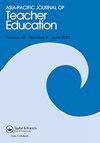An ethics of innovation for teacher education: an interview with Anne Phelan
IF 1.6
3区 教育学
Q2 EDUCATION & EDUCATIONAL RESEARCH
引用次数: 0
Abstract
One of the abiding challenges for teacher education is to create and sustain a sense of educational possibility. This means putting conditions in place that can help preserve the capacity of each new teacher to renew the educational conversation, that is, to question, to articulate what matters, and to imagine yet unthought educational purposes and practices. This means that teacher education programmes and policies not only welcome but nourish the difference that each newcomer brings to the profession. Put simply, the challenge is how to keep the question of a future open. This is a perennial educational challenge of course but one currently haunted by neo-liberal learning utopias, on the one hand, and pandemic dystopias, on the other. Utopian thought provides enticing visions of a better future. In its neo-liberal variety, the future is defined within the terms of global economics. Oriented towards uncontested and predetermined destinations, neo-liberalism offers a sort of user manual for living and teaching (Clarke & Phelan, 2017). It provides direction without inviting an articulation of meaningful purpose (Brown, 2017). This means that the need for ethical judgment or political consideration is erased because, we are told, there are no alternatives to consider. Dion Rüsselbæk Hansen and I have written about how the neo-liberal utopian ideal of a better economic future is entangled with education (Phelan & Rüsselbæk Hansen, 2021). Education becomes little more than “a ‘resource’ to be used as part of the standing reserve in the game of national economic competition” (Peters & Humes, 2003, p. 432). Teachers become the instrumental means to commercial ends and good teaching, directed towards predetermined effects – improvement of student test scores on international comparative tests (Hattie, 2013; McMahon, Forde, & Dickson, 2015) – is seen as merely “a clinical practice positioned within an audit culture” (Peters & Humes, 2003, p. 68). In this scenario, teacher education prepares teachers as:教师教育的创新伦理——访Anne Phelan
教师教育面临的长期挑战之一是创造和维持一种教育可能性的意识。这意味着要创造条件,帮助每位新教师保持更新教育对话的能力,也就是说,提出问题,阐明什么是重要的,并想象尚未考虑的教育目的和实践。这意味着教师教育项目和政策不仅欢迎,而且会滋养每个新人给这个职业带来的差异。简而言之,挑战在于如何保持未来的开放性。当然,这是一个长期存在的教育挑战,但目前一方面是新自由主义的学习乌托邦,另一方面是流行的反乌托邦。乌托邦思想提供了美好未来的诱人愿景。在它的新自由主义变种中,未来是在全球经济的条件下定义的。面向无争议和预定的目的地,新自由主义为生活和教学提供了一种用户手册(Clarke & Phelan, 2017)。它提供了方向,而不需要表达有意义的目的(Brown, 2017)。这意味着对道德判断或政治考虑的需要被抹去了,因为我们被告知,没有其他选择可以考虑。Dion r sselbæk Hansen和我写过关于更好的经济未来的新自由主义乌托邦理想是如何与教育纠缠在一起的(Phelan & r sselbæk Hansen, 2021)。教育只不过是“一种‘资源’,在国家经济竞争的游戏中被用作常设储备的一部分”(彼得斯和休谟,2003年,第432页)。教师成为商业目的和良好教学的工具手段,指向预定的效果-提高学生在国际比较测试中的测试成绩(Hattie, 2013;McMahon, Forde, & Dickson, 2015) -被视为仅仅是“在审计文化中定位的临床实践”(Peters & Humes, 2003, p. 68)。在这种情况下,教师教育将教师培养为:
本文章由计算机程序翻译,如有差异,请以英文原文为准。
求助全文
约1分钟内获得全文
求助全文
来源期刊

Asia-Pacific Journal of Teacher Education
EDUCATION & EDUCATIONAL RESEARCH-
CiteScore
4.40
自引率
7.70%
发文量
29
期刊介绍:
This journal promotes rigorous research that makes a significant contribution to advancing knowledge in teacher education across early childhood, primary, secondary, vocational education and training, and higher education. The journal editors invite for peer review theoretically informed papers - including, but not limited to, empirically grounded research - which focus on significant issues relevant to an international audience in regards to: Teacher education (including initial teacher education and ongoing professional education) of teachers internationally; The cultural, economic, political, social and/or technological dimensions and contexts of teacher education; Change, stability, reform and resistance in (and relating to) teacher education; Improving the quality and impact of research in teacher education.
 求助内容:
求助内容: 应助结果提醒方式:
应助结果提醒方式:


